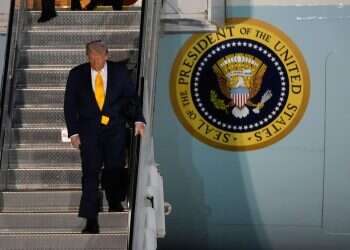The negotiations between Israel and Lebanon over the economic waters of each country have reached a dangerous phase where both sides are trying to do some arm-twisting.
Follow Israel Hayom on Facebook, Twitter, and Instagram
The recent snag in the talks centers on the caveats Lebanon has over the most-recent draft proposed by the US mediator Amos Hochstein. Israel has flat-out rejected the proposed Lebanese changes, saying they run against its economic and security interests. The Israeli statement to that effect did not mention the word "political," although it is certain that politics played a role in Prime Minister Yair Lapid's response. In recent days he has been hammered for supposedly surrendering to Lebanese demands to secure a deal.
On the other hand, it's hard to see why Lebanon has taken this new posture. Yes, submitting reservations to a text is part of any negotiation, including last-minute revisions. But this time it appears that Lebanon tried to jump the shark. Only several days ago Prime Minister Najib Mikati said that the agreement has paramount importance because it will prevent a certain war. If that's his view, he should explain why his government has not embraced this deal and instead opted for an "all or nothing" approach.
The US and various other actors are likely to work overtime to salvage the deal in the coming days. There are two reasons for this effort: first, the ongoing political turbulence in both Israel – which holds its fifth early election in 3 years this November, and Lebanon – which has to decide on a new president in the coming weeks; second, the security concerns over Hezbollah potentially making a move should no deal be reached.
Defense Minister Benny Gantz instructed the IDF on Thursday to increase its operational readiness on both defensive and offensive aspects pertaining to the northern border. That statement is more than just about preparing for an escalation, it is also meant to send a message of deterrence to Hezbollah and Lebanon, making it clear that Israel will not shy away from confrontation should it be forced to. It is safe to assume Nasrallah will try to respond soon, perhaps even by testing Israeli nerves in various ways, be it with words or by sending drones.
The latest developments could all create a negative dynamic of their own. Although both sides maintain a balance of terror and neither seeks war, the reality in which both Lebanon and Israel play a game of chicken is very dangerous. The consequences could ripple far beyond the gas fields in the Mediterranean Sea.
Subscribe to Israel Hayom's daily newsletter and never miss our top stories!




